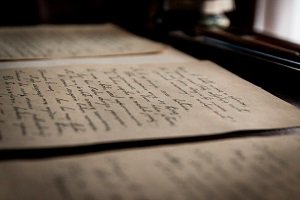A Theory of Knowledge essay is a student’s reflection on the issues of various natural knowledge, its interaction with each other and perception of it by a human. Writing TOK is a mandatory part of the International Baccalaureate Diploma Programme (IBDP), which is appreciated all around the world. TOK Essay discovers such areas of knowledge as Arts, Ethics, History, Mathematics as well as the human and natural sciences, indigenous and religious knowledge systems. The Sample TOK Essay demonstrates the correct structure and content that must be used in such essay.
 There is a statement that the value of knowledge is greatly diminished without its application in the world. Such natural knowledge as Arts is constructed mainly on human’s subjective emotional and sensitive perception. Without “experiencing” Arts in one’s personal life, any knowledge of this area becomes nothing more than a useless system of some abstract statements and idioms.
There is a statement that the value of knowledge is greatly diminished without its application in the world. Such natural knowledge as Arts is constructed mainly on human’s subjective emotional and sensitive perception. Without “experiencing” Arts in one’s personal life, any knowledge of this area becomes nothing more than a useless system of some abstract statements and idioms.
Human activity in the modern world can be roughly divided into two aspects: functionality and aesthetics. There are things people do because of the real need, and there are things made by people who are guided by their subjective desire to feel “beautiful”. Knowledge of art integrated into the everyday life can be defined as the aesthetics. John Dewey, the American philosopher and psychologist once clearly defined what happens if one separates art theory from experiencing an art: “When artistic objects are separated from both conditions of origin and operation in experience, a wall is built around them that renders almost opaque their general significance, with which esthetic theory deals.” Thus, for example, even knowing all the subtlety and genius of Mozart’s compositions, one would not be truly impressed by them if this music was not played in a significant moment of his or her life.
Real art can rarely be put into practice as a result of the sudden impulse. It is defined as the amateur art and is at a lower position in relation to the academic or classical art. However, the study of the theory of art, without implicating it in a life, is a mandatory option in becoming an artist at some period of time. The thing is that even the study of art itself will be incomplete if one just read some books and look for any useful information. The very process of learning should be interactive by its nature, which implies some activity in daily life. A true artist must communicate and interact with other artists, attend exhibitions and conferences, hold discussions. All this taken together is a direct implementation of the learning process, which makes something more than just absorbing the information.
Consequently, knowing the importance of implicating art into life opens a whole new perspective on the study of arts. This knowledge can be important for many students who study the history and theory of art with no regard to their actual realization in life. In other words, it is impossible to become an expert in some practical sphere without actually practicing it for some period of time. To learn the art is to know how to express one’s idea, feeling, or a protest while no experience in the art creation, this knowledge does not make any sense.
References
- Dewey, J. (2005). Art as Experience. New York: The Penguin Group.
- Lieu, C. (2015). Ask the Art Professor: How Can I Study to Become a Professional Artist on My Own? Huffington Post. Retrieved 14 September 2016, from http://www.huffingtonpost.com/clara-lieu/ask-the-art-professor-how_14_b_6435828.html.
